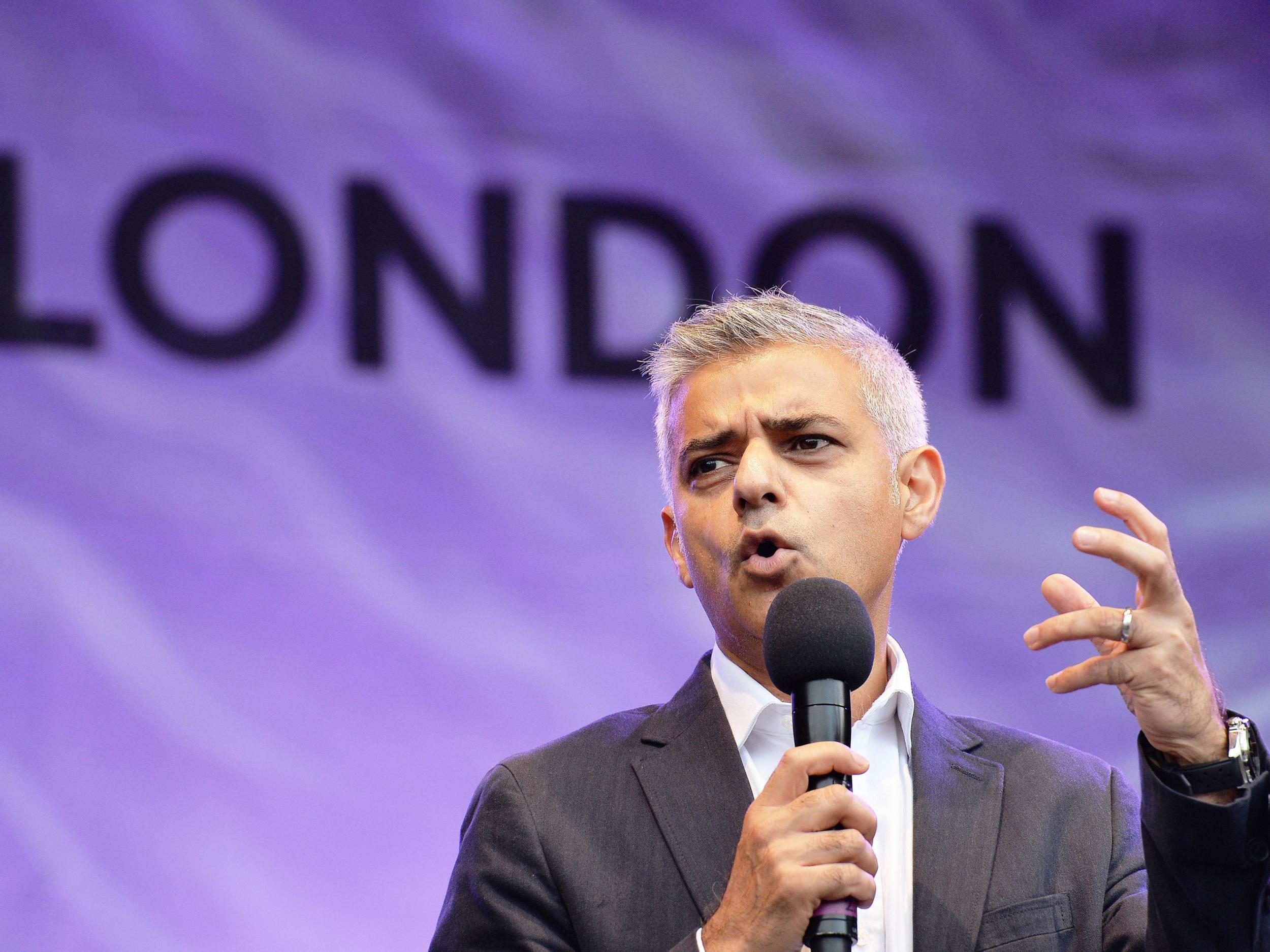Sadiq Khan has just unveiled his Brexit Expert Advisory Panel, and almost all of them have corporate interests
Essentially, the Mayor has appointed a gang of corporate giants to help him sort out Brexit. They lobby for a hypercapitalist London where wealth is transferred from the poor to the rich through privatisation and unpaid tax

Your support helps us to tell the story
From reproductive rights to climate change to Big Tech, The Independent is on the ground when the story is developing. Whether it's investigating the financials of Elon Musk's pro-Trump PAC or producing our latest documentary, 'The A Word', which shines a light on the American women fighting for reproductive rights, we know how important it is to parse out the facts from the messaging.
At such a critical moment in US history, we need reporters on the ground. Your donation allows us to keep sending journalists to speak to both sides of the story.
The Independent is trusted by Americans across the entire political spectrum. And unlike many other quality news outlets, we choose not to lock Americans out of our reporting and analysis with paywalls. We believe quality journalism should be available to everyone, paid for by those who can afford it.
Your support makes all the difference.After London voted to remain in the EU, Sadiq Khan promised to fight the capital’s corner in Brexit negotiations. But the panel of advisory experts he revealed yesterday is worrying. He claims it includes leaders from “financial services, technology, science and the media”. A closer look shows that it’s strikingly corporate.
Other than a few exceptions like GQ, Imperial College, the Law Society and Cancer Research, it is big business that will be laying the groundwork for the Mayor’s negotiations. The panel is dominated by the likes of the Canary Wharf Group, London Stock Exchange Group, PricewaterhouseCoopers, Santander, Lloyds Bank and the City of London Corporation.
When securing the best deal for London, whose interests will Sadiq be thinking of? Will it be those of ordinary Londoners, or large corporations and banks? Of course business is important to London’s economy. But are the Mayor’s chosen organisations really fit to represent Londoners?
The Canary Wharf Group is responsible for privatising huge chunks of East London, driving “regeneration” by inviting investment banks and corporations into a part of the city which has the highest rate of child poverty in the UK. Nothing seems to trickle down from the steel and glass towers to the nearby estates. The Group’s recent moves don’t hold much promise for change either—opposition to cycle lanes in Central London, the construction of luxury accommodation and a redevelopment of the Shell Centre.
Then we’ve got the City of London Corporation, which has been accused of serving as a hub controlling the “network of tax havens housed in the UK’s crown dependencies and overseas territories.” Writing in the Guardian, George Monbiot likened it to an “[offshore] autonomous state within our borders[…] in a position to launder the ill-gotten cash of oligarchs, kleptocrats, gangster and drug barons.”
Professional service provider PricewaterhouseCoopers was accused last year by MPs of promoting tax avoidance on an “industrial scale”, by helping clients to set up bases in Luxembourg.
Essentially, the Mayor has appointed a gang of corporate giants: gentrifiers, tax avoiders and deregulators, to help him sort out Brexit. These are groups that not only uphold a deeply unequal city, but work to further it. They lobby for a hypercapitalist London where wealth is transferred from the poor to the rich through privatisation and unpaid tax. Is this all we had to lose from the EU: ease for big business?
There is a sound left-wing critique of the EU. Its response to the financial crisis in Greece demonstrated an institutional love of austerity. The proposed EU-US TTIP trade deal would open up for more deregulation and privatisation. Much EU law is already designed to discourage public ownership of industry. Additionally, the Union has militarised its external borders, criminalised migrants, and begun deporting refugees.
But other elements of the EU are hugely beneficial for ordinary people. These include the freedom of movement, allowing citizens to live, work and study across the continent, made possible by a single market enabling businesses to expand and create jobs. There are also binding climate change targets and workers’ and parental rights provisions in the Social Chapter. Not to mention transnational science and education collaboration.
Surely Sadiq should aim to save this EU for London? Perhaps corporations are the only way he can access the negotiation table—but would it be too much to ask for representation of the rest of society on it? Representatives from the NHS would be well-placed to discuss the possible shortfall in hospital staff caused by Brexit. The same goes for migrant groups concerned about the rights of EU citizens in the capital. How about Trade Unions who want to save EU social provisions? Refugee groups who want London to retain policy influence and push for increased acceptance? Scientists, dependent on EU collaboration and funding? And environmental groups, transport companies like Eurostar and the tourism industry?
Maybe we should give Sadiq the benefit of the doubt, given he has confirmed plans to look into post-Brexit London work visas for Europeans. But he needs to make it clear that he’s serious about getting the best Brexit deal for all Londoners. It’s also important to represent these voices on a national negotiation table where corporations and Conservatives will inevitably dominate.
It’s people, not big business, that make London a great European city. Londoners deserve a Brexit panel that reflects this.
Join our commenting forum
Join thought-provoking conversations, follow other Independent readers and see their replies
Comments